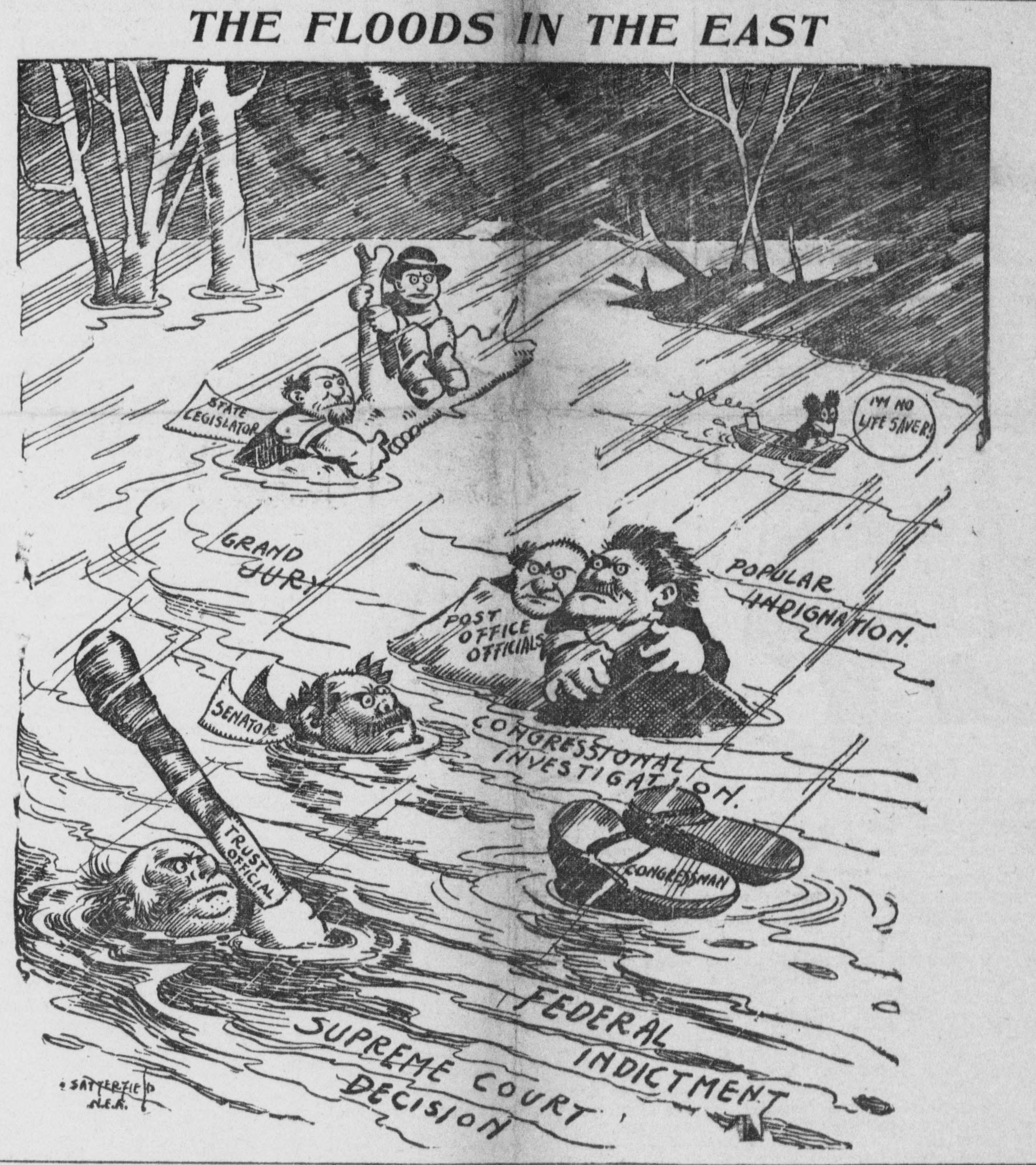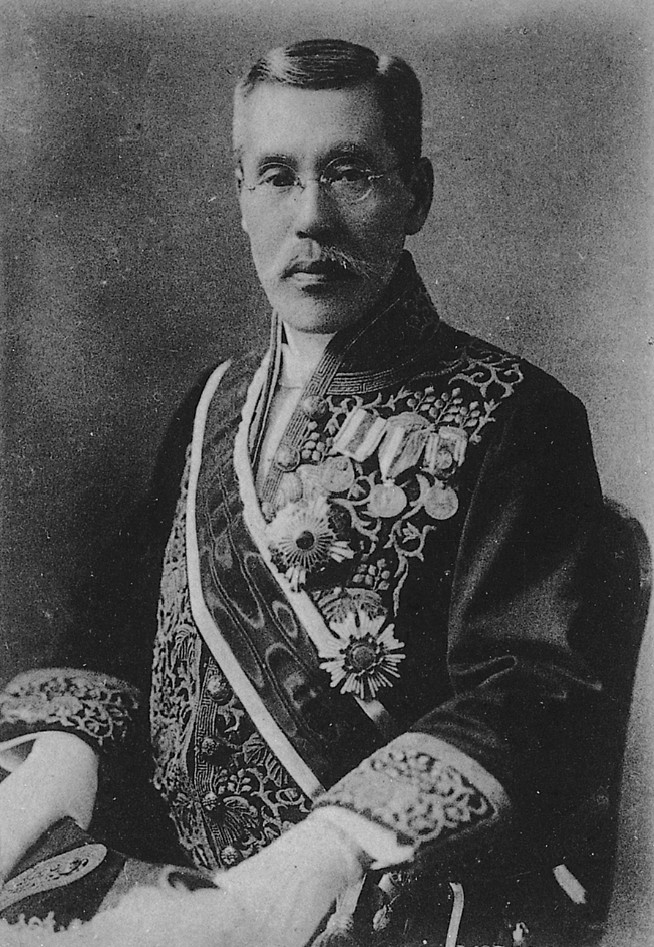|
Teijin Incident
The was a political scandal in the early Shōwa period of Imperial Japan which brought about the collapse of the administration of Prime Minister Saitō Makoto in 1934. History and background In June 1933, the ''Banchokai'', a group of young investors, purchased 100,000 shares of Teijin (a leading rayon and textile firm) from the Bank of Taiwan at a price of ¥125 per share. The stock steadily rose in price, reaching ¥200 per share by the end of the year, and rumors began to arise in the editorial pages of various newspapers that the ''Banchokai'' had somehow managed to manipulate the market. Working with this unsubstantiated rumor, ultrarightist officials in the Ministry of Justice accused officials in the Ministry of Finance and members of Saitō Cabinet of conspiracy with the Bank of Taiwan to permit the ''Banchokai'' to purchase shares at an artificially low price in return for bribes of cash and stock. In April 1934, the Ministry of Justice ordered the arrest of the Vic ... [...More Info...] [...Related Items...] OR: [Wikipedia] [Google] [Baidu] |
Political Scandal
In politics, a political scandal is an action or event regarded as morally or legally wrong and causing general public outrage. Politicians, government officials, Political party, party officials and Lobbying, lobbyists can be accused of various illegal, political corruption, corrupt, unethical or sex scandal, sexual practices. Politicians and officials who are embroiled in scandals are more likely to retire or get lower vote shares. Journalism Scandal sells, and broadsides, pamphlets, newspapers, magazines and the electronic media have covered it in depth. The Muckraker movement in American journalism was a component of the Progressive Era in the U.S. in the early 20th century. Journalists have built their careers on exposure of corruption and political scandal, often acting on behalf of the opposition party. The political ideology of media owners plays a role—they prefer to target the opposition but will reluctantly cover their own side. Journalists have to frame t ... [...More Info...] [...Related Items...] OR: [Wikipedia] [Google] [Baidu] |
Corruption
Corruption is a form of dishonesty or a criminal offense that is undertaken by a person or an organization that is entrusted in a position of authority to acquire illicit benefits or abuse power for one's gain. Corruption may involve activities like bribery, influence peddling, and embezzlement, as well as practices that are legal in many countries, such as lobbying. Political corruption occurs when an office-holder or other governmental employee acts in an official capacity for personal gain. Historically, "corruption" had a broader meaning concerned with an activity's impact on morals and societal well-being: for example, the ancient Greek philosopher Socrates was condemned to death in part for "corrupting the young". Contemporary corruption is perceived as most common in kleptocracies, oligarchies, narco-states, Authoritarianism, authoritarian states, and mafia states, however, more recent research and policy statements acknowledge that it also exists in wealthy capitalist e ... [...More Info...] [...Related Items...] OR: [Wikipedia] [Google] [Baidu] |
Politics Of The Empire Of Japan
Politics () is the set of activities that are associated with making decisions in groups, or other forms of power relations among individuals, such as the distribution of status or resources. The branch of social science that studies politics and government is referred to as political science. Politics may be used positively in the context of a "political solution" which is compromising and non-violent, or descriptively as "the art or science of government", but the word often also carries a negative connotation.. The concept has been defined in various ways, and different approaches have fundamentally differing views on whether it should be used extensively or in a limited way, empirically or normatively, and on whether conflict or co-operation is more essential to it. A variety of methods are deployed in politics, which include promoting one's own political views among people, negotiation with other political subjects, making laws, and exercising internal and external f ... [...More Info...] [...Related Items...] OR: [Wikipedia] [Google] [Baidu] |
1934 In Japan
Events in the year 1934 in Japan. Incumbents *Emperor: Hirohito *Prime Minister: **Saitō Makoto **Keisuke Okada Governors *Aichi Prefecture: Osamu (until 11 August); Eitaro Shinohara (starting 11 August) *Akita Prefecture: Takabe Rokuzo *Aomori Prefecture: Taku Yasunobu (until 11 August); Mitsumasa Kobayashi (starting 11 August) *Ehime Prefecture: Jiro Ichinohe *Fukui Prefecture: Shigeo Odachi (until 6 April); Shunsuke Kondo (starting 6 April) *Fukushima Prefecture: Shiomi Hatakeyama (until 26 October); Ito Takehiko (starting 26 October) *Gifu Prefecture: Umekichi Miyawaki *Gunma Prefecture: Masao Kanazawa * Hiroshima Prefecture: Michio Yuzawa *Ibaraki Prefecture: Abe Kashichi *Iwate Prefecture: Hidehiko Ishiguro *Kagawa Prefecture: Yoshisuke Kinoshita *Kanagawa Prefecture: Sukenari Yokoyama *Kumamoto Prefecture: Keiichi Suzuki *Kochi Prefecture: Sakama Osamu *Kyoto Prefecture: Saito Munenori *Mie Prefecture: Hirose Hisatada (until 23 June); Saburo Hayakawa ( ... [...More Info...] [...Related Items...] OR: [Wikipedia] [Google] [Baidu] |
League Of Blood Incident
was a 1932 assassination plot in Japan in which extremists targeted wealthy businessmen and liberal politicians. The group chose twenty victims but succeeded in killing only two: former Ministry of Finance (Japan), Finance Minister and head of the Rikken Minseitō political party, Junnosuke Inoue, and the Director-General of Mitsui, Mitsui Holding Company, Dan Takuma. The arrest of the assassins led to the discovery of the existence of a civilian ultranationalism, ultranationalist, Fascism, fascist group led by self-styled Buddhist preacher, Nisshō Inoue. Background Born as Nissho Inoue, Inoue Shirō in 1886 in Gunma Prefecture, Nisshō spent his young adult life as a drifter and adventurer, eventually ending up in northern China, north and northeast China gathering information for the Japanese military. After a series of mystical experiences in 1923–24, Inoue became convinced that Japan required spiritual rebirth and that he was called to be its savior. He established a scho ... [...More Info...] [...Related Items...] OR: [Wikipedia] [Google] [Baidu] |
Sakurakai
, was an ultranationalist secret society established by young officers within the Imperial Japanese Army in September 1930, with the goal of reorganizing the state along totalitarian militarist lines via a military coup d'état, if necessary. Its avowed goal was a Shōwa Restoration, which they claimed would restore Emperor Shōwa to his rightful place, free of party politics and evil bureaucrats in a new military dictatorship. They also advocated for state socialism, according to the model proposed by Kita Ikki. The Sakurakai was led by Imperial Japanese Army Lieutenant Colonel Kingoro Hashimoto, the chief of the Russian section of the Imperial Japanese Army General Staff, and Captain Isamu Chō. The society began with about ten members, active-duty field grade officers of the Army General Staff, and was expanded to include regimental-grade and company-grade officers. Its membership had increased to more than 50 by February 1931 and possibly up to several hundred by October 19 ... [...More Info...] [...Related Items...] OR: [Wikipedia] [Google] [Baidu] |
Prosecutor
A prosecutor is a legal representative of the prosecution in states with either the adversarial system, which is adopted in common law, or inquisitorial system, which is adopted in Civil law (legal system), civil law. The prosecution is the legal party responsible for presenting the case in a criminal trial against the defendant, an individual accused of breaking the law. Typically, the prosecutor represents the state or the government in the case brought against the accused person. Prosecutor as a legal professional Prosecutors are typically lawyers who possess a law degree and are recognised as suitable legal professionals by the court in which they are acting. This may mean they have been admitted to the bar or obtained a comparable qualification where available, such as solicitor advocates in English law, England law. They become involved in a criminal case once a suspect has been identified and Indictment, charges need to be filed. They are employed by an office of the ... [...More Info...] [...Related Items...] OR: [Wikipedia] [Google] [Baidu] |
Hiranuma Kiichirō
Baron was a Japanese lawyer and politician who served as Prime Minister of Japan in 1939. Hiranuma rose to prominence as a prosecutor and official in the Ministry of Justice. He served as minister of Justice under Prime Minister Yamamoto Gonnohyōe and later became a privy counsellor. After serving as president of the privy council, he became prime minister in 1939, but resigned later the same year. He later returned to cabinet under Fumimaro Konoe. After the Japanese surrender, he was sentenced to life imprisonment by the International Military Tribunal for the Far East for his role in World War II. Early life and education Hiranuma was born on 28 September 1867, in what is now Tsuyama City, Okayama Prefecture, as the son of a low-ranking samurai from the Tsuyama Domain of Mimasaka Province. His upbringing and early education was steeped in ''bushido'' and the study of Chinese classics. Hiranuma graduated with a degree in English law from Tokyo Imperial University in 1888. ... [...More Info...] [...Related Items...] OR: [Wikipedia] [Google] [Baidu] |
Kokuhonsha
The was a nationalist political society in late 1920s and early 1930s Japan. History The ''Kokuhonsha'' was founded in 1924 by conservative Minister of Justice and President of the House of Peers, Kiichirō Hiranuma. It called on Japanese patriots to reject the various foreign political “-isms” (such as socialism, communism, Marxism, anarchism, etc.) in favor of a rather vaguely defined “Japanese national spirit” (''kokutai''). The name “''kokuhon''” was selected as an antithesis to the word “''minpon''”, from ''minpon shugi'', the commonly used translation for the word “democracy”, and the society was openly supportive of totalitarian ideology. The elder statesman Saionji Kinmochi publicly criticized the organization of promoting Japanese fascism. Membership of the ''Kokuhonsha'' included many of Hiranuma's colleagues from the Ministry of Home Affairs, important businessmen, as well as some of the most powerful generals and admirals, including generals S ... [...More Info...] [...Related Items...] OR: [Wikipedia] [Google] [Baidu] |
Capitalism
Capitalism is an economic system based on the private ownership of the means of production and their use for the purpose of obtaining profit. This socioeconomic system has developed historically through several stages and is defined by a number of basic constituent elements: private property, profit motive, capital accumulation, competitive markets, commodification, wage labor, and an emphasis on innovation and economic growth. Capitalist economies tend to experience a business cycle of economic growth followed by recessions. Economists, historians, political economists, and sociologists have adopted different perspectives in their analyses of capitalism and have recognized various forms of it in practice. These include '' laissez-faire'' or free-market capitalism, state capitalism, and welfare capitalism. Different forms of capitalism feature varying degrees of free markets, public ownership, obstacles to free competition, and state-sanctioned social poli ... [...More Info...] [...Related Items...] OR: [Wikipedia] [Google] [Baidu] |







